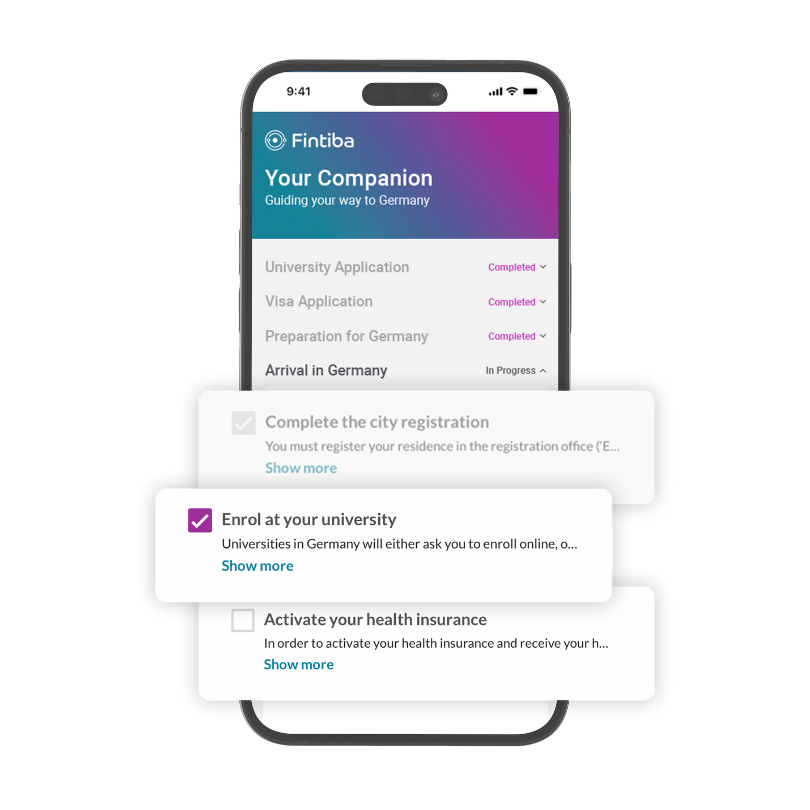German universities are rising in popularity amongst international students. Due to this high demand among applicants, German legislation and German universities need prospective students to fulfil certain requirements to be granted admission. You can find out about the various types of requirements and under which circumstances they apply in the following article.
University entrance qualification
One of the most basic requirements that must be fulfilled by all applicants is the university entrance qualification (“Hochschulzugangsberechtigung” in German). This entrance qualification determines whether the education, training, work experience or studies that you obtained in your home country are sufficient for studies at a German institution and if so if there are any restrictions that apply. So, for example, if you obtained your Bachelor’s degree in a biology programme in your home country, you will likely be able to complete your Master’s studies in a similar field in Germany if your certification is accepted. However, it is unlikely that you would be able to further study in the fields of literature with this previous education.
To get an idea about which possibilities are open for you, you can check uni-assist’s data base. All you have to do is enter the country in which you obtained your degrees and tick the information boxes that are relevant to you. Once this is done, you will get a first impression of which courses, in general, are available for you. Please note that this is not a full representation of all universities in Germany. There are certain requirements that always need to be fulfilled (the “Hochschulzugangsberechtigung” is one of them), but there could also be additional requirements, depending on the institution you want to study at.
Special university requirements
So, in case you already found your dream university, it’s worth a shot to contact them directly and check, whether they accept your application or if additional documents or preparational courses (“Studienkollegs”) are required. Furthermore, especially universities with courses of study in creative fields, such as music and arts, often prefer a sample of your skills to the actual grades of your former studies.
Aside from the above-mentioned certificates or the Studienkolleg, many universities also value your final average degree for the admission process. This, however, strongly depends on the university you apply to and the course of studies you want to participate in. Very popular degree programmes such as the different medical disciplines traditionally place higher requirements on their applicants than other fields. In addition, very prestigious universities may impose certain minimum grades for their students before even considering them for application.
In some cases, universities also conduct application interviews in which applicants must convince the interviewers of their qualifications and will to study at their institution. This is, once again, a factor that you have to individually check with the universities you want to apply for. These selection criteria can be defined by the universities independently.
These interviews can come in all shapes and forms, also greatly dependent on the type of studies you are planning to pick up. For the creative arts, you might have to give a live demonstration of your skills in that field. Other universities might already use the interview to check your language skills first-hand or want to determine, what your motivations for studying in Germany are and if you fit into the community of the university. As you can see, there are lots of different things you can expect from a university interview. The best way to prepare for them is to have a rough idea of what you want to talk about and if requested, a presentation well-rehearsed. A good first impression can only be achieved once and is irredeemable, so give your best to show yourself from your best side and be confident in your skills. It is them that the university is most interested in, together with the person possessing them – you!
Preparation courses and tests to earn the university entrance qualification
It can happen that your documentation is accepted for studies in Germany under the condition that you participate in a preparation course (also called foundation course or basic courses, usually takes place as Studienkollegs) or provide a positive result of a certain test, such as the TestAS.
Studienkolleg as a requirement for admission at a German university
Participation in a Studienkolleg is one of the more common ways to earn eligibility to study at a German university. In a Studienkolleg, you earn the academic, professional, interpersonal and language skills that are deemed necessary for successful studies in Germany. Depending on your knowledge in these fields, the Studienkolleg usually lasts one to two semesters and ends with an assessment test (Feststellungsprüfung) that must be passed to be admitted to a university.
TestAs as preparation for your future studies in Germany
If you would like to find out how your chances of admission and successful studies in Germany are, you can also participate in the TestAS before writing your applications. This test consists of two parts, a general test, which all participants must take, and a subject-specific test, which you must choose yourself. Based on the questions asked, you can assess what is expected from you in German institutions and what you can expect when enrolling at a German university. Furthermore, you can use this test for your university application, which might boost your chances of being admitted when your results were good. Most universities will be able to view the results through the website of TestAS and then include your skillset displayed in the test in their judgment over your application.
It is worth to mention that some universities might explicitly request you to participate in this test, while others do not require it at all. Please also note that this test is paper-based, only takes place during certain dates and will be conducted in a test centre in your home country (if available). So, please make sure to apply for it in due time to make sure that there are slots left. Also, be aware of the registration fee that depends on the country you are taking the test in.
Language qualification for university admission
When planning to study in Germany, it is very likely that you will need to prove that you have a certain level of German language skills. Again, it depends on your university which level of German you need to certify, and which certificates are accepted by them. Commonly accepted certificates are the following:
- Goethe Zertifikat
- TestDaF
- TELC
- Deutsche Sprachprüfung für den Hochschulzugang (DSH), test to be taken at your university directly
Please be aware that there are also universities that offer courses entirely in English. In those cases, you will likely have to prove your English skills, rather than your German skills. However, it is always helpful to learn German when studying here to be able to find your way around the country more easily. In any case, it is always recommended to check with the university beforehand, which requirements you have to fulfil, and which documents and certificates comply with those requirements.
Your journey to university admission
Do you now wonder how a standard application process would look like? Check out the following to learn more about the individual steps you need to complete to successfully apply at a German university.
- Go to uni-assist.de, DAAD.de or anabin.de to check if your already achieved educational level is sufficient for studies at a German university
- Search for universities with courses that are of interest for you or that have a certain reputation and that match your qualification (for example through this website)
- Check the admission requirements for your desired course of study on the website of the institution
- If needed: Register for the necessary language certificates needed for your preferred course of study or for any other requested preparational course
- Apply at the selected universities and attach the registration letter for the course you are participating in, if applicable
- Some universities might invite you for a preliminary interview, most likely through some sort of digital communication software
- After your successful application and interview, you receive a full or conditional admission from your institution
- You can now apply for your visa and come to Germany to successfully enrol at your university
- Finish your language or preparational course after you arrive in Germany
- Hand in your certificate of successful completion of your course
- Enrol at your university
- Enjoy your time in Germany 😊

Are you preparing for a stay in Germany? Get Fintiba Plus to cover all requirements!
Our specially integrated bundle of a digital blocked account and tailor-made health insurances covers all requirements for your German entry visa, your residence permit application and enrolment at your German university.
Last update: February 13, 2024
